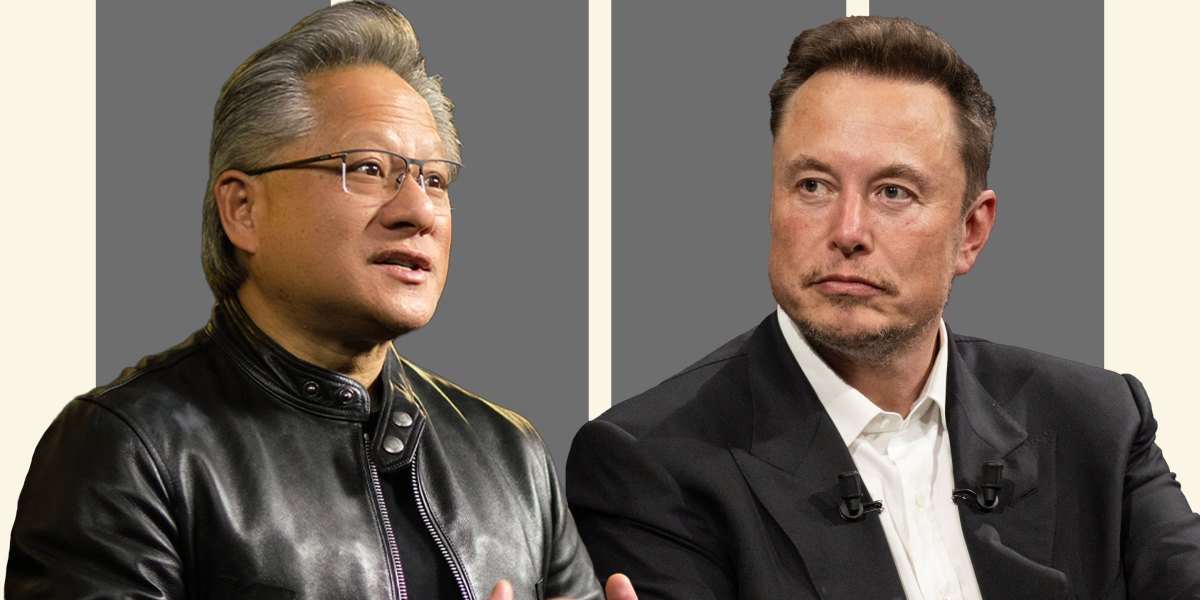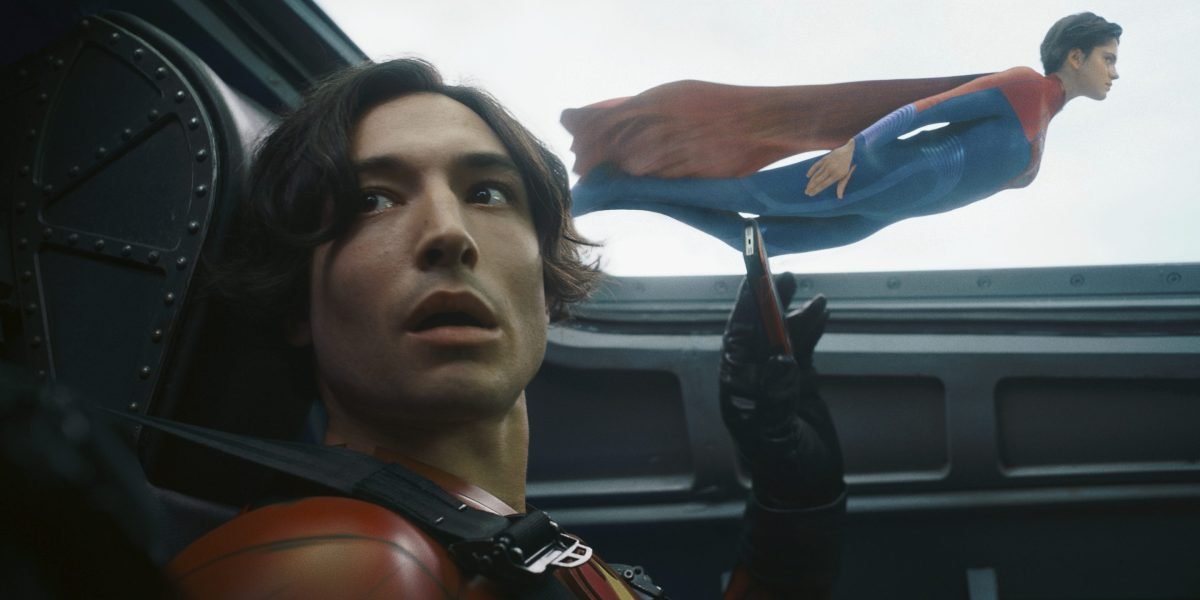Depending on who you ask, artificial intelligence will steal more jobs than it creates or vice versa. Few doubt that AI tools like ChatGPT will make some jobs obsolete, but opinions vary widely on what the overall impact will be in the long run—even among two of the emergent tech space’s billionaire visionaries.
In recent days, Tesla CEO (and OpenAI co-founder) Elon Musk and Nvidia CEO Jensen Huang couldn’t have expressed more different visions for the future of the economy, once AI reaches its full potential.
The two have known each other for years. Huang (net worth: $38.7 billion) is a Tesla customer and interviewed Musk (net worth: $208 billion) onstage at an 2015 Nvidia event, raving about Musk’s accomplishments with electric vehicles. But since AI exploded onto the scene this year, Nvidia has gained a new prominence thanks to booming demand for its AI chips. Its market cap now exceeds $1 trillion, catapulting over Tesla, which currently sits at $690 billion.
Musk said in Tesla’s second-quarter earnings call that he has “tremendous respect for Jensen and Nvidia” and that his carmaker is “using a lot of Nvidia hardware,” adding, “We’ll actually take Nvidia hardware as fast as Nvidia will deliver it to us.”
But Musk’s view on AI’s potential to replace humans in jobs is decidedly darker than Huang’s.
Whither jobs under AI?
“There will come a point where no job is needed,” Musk said on Thursday while sharing a stage with British Prime Minister Rishi Sunak at the UK AI Safety Summit (held fittingly at Bletchley Park, an English estate considered one of modern computing’s birthplaces due to its role in Allied code-breaking during World War II). “You can have a job if you want a job. One of the challenges in the future will be how do we find meaning in life.”
Calling AI the “most disruptive force in history,” he said we’ll eventually “have something that’s smarter than the smartest human.”
A few weeks earlier, though, Huang shared his more upbeat outlook about AI in an interview with the Acquired podcast.
“My sense is that it’s likely to generate jobs,” he said. “The first thing that happens with productivity is prosperity. When the companies get more successful, they hire more people, because they want to expand into more areas.”
A common line of thinking, he noted, is that if a company improves productivity with AI, then it will employ fewer people. But that assumes a company will have no new ideas, he said, and “that’s not true for most companies.”
So long as there are more areas to expand into—new ideas in transportation, retail, entertainment, technology, and drug discovery—the prosperity that comes from improved productivity results in more people being hired, he believes. He noted that today’s industries are larger than those of a thousand years ago “because obviously humans have a lot of ideas.”
Huang does think some people will lose their job due to artificial intelligence, but argues they’ll more likely lose it to another human using AI. “I think jobs will change,” he said, but “my guess is that we’ll actually have higher employment, we’ll create more jobs.”
The remote work wrinkle
The difference may stem from how Musk seems in general to have a harsher view of employees than Huang does. Another area where they completely disagree is remote work. While Musk has railed against it—suggesting remote workers “pretend to work”—Huang has no problem with it whatsoever, telling VentureBeat in 2020 that, however employees choose mix their work settings, “I’m perfectly comfortable with all that.”
Nvidia has stuck with its remote work policy; meanwhile, an increasing number of high-profile CEOs have embraced Musk’s line of thinking and issued return-to-office mandates.
And while Musk ruthlessly slashed 80% of the workforce at Twitter after acquiring the company late last year, at one point mocking a fired employee with a disability before backpedaling—he soon faced a flurry of lawsuits and other legal actions over benefits owed and the manner of the terminations—Nvidia avoided the large layoffs seen elsewhere in the tech industry.
Huang said in the Acquired interview, “I’m afraid of the same things today as I was in the very beginning of this company, which is letting the employees down. You have a lot of people who joined your company because they believe in your hopes and dreams, and they’ve adopted it as their hopes and dreams…You want them to be able to build a great life as well as help you build a great company.”





